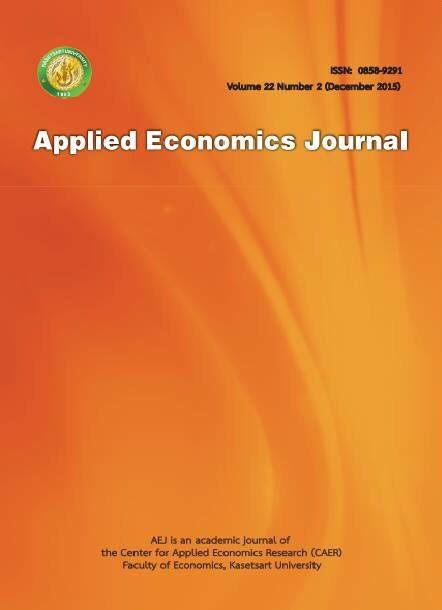Time-varying Industrial Portfolio Betas under the Regime-switching Model: Evidence from the Stock Exchange of Thailand
Main Article Content
Abstract
Applications of beta are crucial in determining equity pricing and portfolio strategy. The conditional Capital Asset Pricing Model (CAPM) theory suggests thatsystematic risk factor (henceforth “beta”) is changing over time. Therefore, this paper investigates the time-varying beta behavior in the Stock Exchange of Thailand using the two-regime Markov-switching model. The monthly returns of eight industrial portfolios from July 2005 to September 2014were used in this study. In comparison, the results from the unconditional CAPM beta and three-year rolling regression show that betas are unstable over time. In addition, the linearity LR tests confirmed non-linearity in all of the industrial portfolio returns, suggesting that betas are time-varying. The empirical results from the Markov-switching model showed that the conditional betas could be classified into two regimes: low beta one and high beta one. Overall, the results confirmed that the systematic risk of industrial portfolios is time-varying and regime-dependent. Therefore, the performance of asset allocation and risk management strategies could be improved if investors considered the regime-switching behavior of industrial portfolio returns in the portfolio construction instead of the traditional approach with constant beta.
Article Details
The paper is published under CC BY-NC-ND, in which the article is freely downloaded and shared in its original form non-commercially and its citation details are identified.


